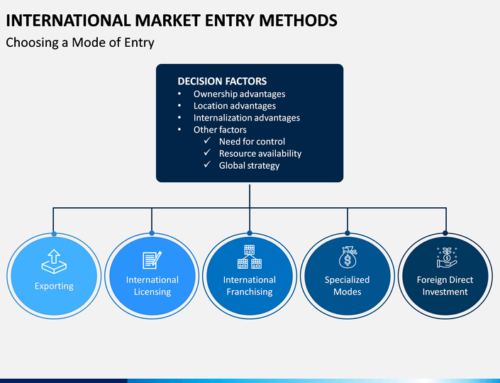At Trade Horizons we work with SME companies from across the world, who are looking to expand into the UK. The first question we always ask of any business that contacts us, is do you have a market entry plan? And surprisingly, the answer is often ‘no’.
What we find instead is that businesses are intending to use networking as their way in. They plan to generate sales by finding channels and developing a sales pipeline, either through partners, distributors, agents or wholesalers, or by hiring a sales director. Some also have designs on expanding through mergers and/or acquisition.
By networking they hope to gather market intelligence that will help them better understand the state of the market and uncover key issues and opportunities. Entrepreneurs in particular like to learn about the new prospective market in this way – feeling their way in.
But this is one of the most common mistakes any business with ambitions of international expansion can make. While networking may be valuable, it will only work effectively if carried out as part of an overall, strategic and informed market entry plan. If the plan in place is simply to come to the UK, network to find a partner and start generating sales, then the chances of success are going to be slim.
Here are the five top issues businesses can hit when they don’t have a market entry plan:
1) Having a skewed or imperfect market understanding
In the absence of proper market research, businesses can end up with a partial or skewed snapshot of the target market. There will be no understanding for key trends, or PESTEL factors that may be influencing the market. The influence and impact of substitute and complimentary markets will also be missed, along with new channels and other opportunities.
Gaining a granular level of market nuances through networking is good, but it cannot be the only analysis or research that is undertaken.
2) Becoming an undifferentiated market follower
Learning and approaching a market through networking alone will rarely lead to sound market entry decisions. Companies who are lacking a proper plan tend to arrive in their target market and start following the usual, well-trodden path. They will do as others do, meaning they are undifferentiated in any way.
Example 1
We were approached by an ERP company who had a great system with unique features and had been successful with a differentiated business model in their own country. They entered the UK without analysis and used ‘networking’ to figure out what best to do.
They were advised by a contact that ERP systems are sold through resellers and they should go down that route. They followed this advice and ended up adding their product to a long list of ERP systems trying to sell to the same customers, in the same way. In doing so, they missed an opportunity to carve out their own niche and secure a share of the market place.
3) Being perceived as lacking in professionalism
In an increasingly sophisticated and highly competitive market like the UK, any company that hasn’t done its research and understood the business requirements for achieving success here, will not be able to provide a serious business case for the market. Without gaining support, the company will not be seen as professional enough, or someone to do business with.
Partners, channels and customers will expect market understanding, a strong business case and a clear strategy, plan and differentiated offer. If not, they will turn to the dozens of other companies who are better prepared.
Example 2
An ICT services company came to the UK and immediately started trying to sell, using networks as their primary means for learning and selling into the market. They had no analysis, no plan and hadn’t worked out a distinctive proposition for this market.
Realising they weren’t succeeding, they started looking for a partner to help them, but couldn’t even get meetings with prospective partners as they were not seen as ‘professional’ suppliers/partners. They were understandably dismayed by their lack of success.
In contrast, another company from the same country, offering the same service and arriving at the same time, had done their research. They knew they had a cost advantage over a variety of other vendors and had developed a highly attractive business model and proposition for partners. They found it easy to land appointments and lined up a variety of potential partners, launching here successfully as a near shore supplier.
4) Grabbing early sales but not securing a consistent pipeline
The networking approach may lead to sales. It may even lead to a potential partner. However, time and time again we have seen that getting one or two early POs is not indicative of an ability to build a long-term healthy sales pipeline. And that is what is needed to establish a long-term profitable business.
We have met many companies who have landed a handful of POs on the back of a few introductions, but a year later have got through hundreds of thousands of pounds and still have no pipeline, nor clue how to achieve ongoing sales.
5) Making uninformed decisions
Companies without a plan risk making important decisions without clear supporting evidence. They may grab a partner without any understanding of whether a partnership strategy is the right thing to do. Or they may pursue a certain channel they’ve been told is the right one, without understanding all the options. They may negotiate a deal without knowing what terms are going to be favourable (or even usual) and may even go after a target market that is entirely wrong for their product or service in this country.
Efforts to achieve sales will end up being scattergun and directionless. This wastes valuable time and money, which for any company is a huge risk. It can also take a company along a path that turns out to be a dead end.
Conducting the proper research and planning before arriving in the market is the only way to ensure a solid basis for decision making and taking action.
Plan for success
When you have ambitions to enter a highly developed and competitive market, such as the UK, it is vital that you have a clear market entry plan before you enter the market.
To be successful, you need to have the right research and planning in place, so you can target all your money and efforts in the right areas, and with a clear end goal in mind.
It’s an easy mistake to make, to think that taking a desk in a co-working space and ‘networking’ will enable you to build a thriving business and achieve your international ambitions. But three in every four companies fail this way. Don’t let that be you. Aim to be the one in four who triumphs, by planning for success.
Are you an ambitious company, eager to enter new markets? Our experienced team has helped companies across the world to do just that. For an informal chat about your goals, and to find out more about how we can help you reach them, please get in touch using info@tradehorizons.com, or by calling +44 333 210 0737.







